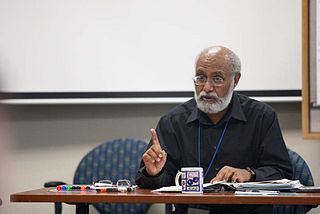A Quote by Hizkias Assefa
What my experience has taught me is that regardless of how complicated the problems might appear, it is possible to work through them and find solutions that are mutually satisfactory to every stakeholder in the problem... most of our problems on this earth are created by us and therefore we have the capacity and the obligation to unmake them.
Related Quotes
When things go wrong in our life and we encounter difficult situations, we tend to regard the situation itself as our problem, but in reality whatever problems we experience come from the side of the mind. If we were to respond to difficult situations with a positive or peaceful mind they would not be problems for us; indeed, we may even come to regard them as challenges or opportunities for growth and development. Problems arise only if we respond to difficulties with a negative state of mind. Therefore, if we want to be free from problems, we must transform our mind.
Why do we focus so intensely on our problems? What draws us to them? Why are they so attractive? They have the magnet power of love: somehow we desire our problems; we are in love with them much as we want to get rid of them . . . Problems sustain us -- maybe that's why they don't go away. What would a life be without them? Completely tranquilized and loveless . . . There is a secret love hiding in each problem
What I learned from my work as a physician is that even with the most complicated patients, the most complicated problems, you've got to look hard to find every piece of data and evidence that you can to improve your decision-making. Medicine has taught me to be very much evidence-based and data-driven in making decisions.
What then are we to do about our problems? We must learn to live with them until such time as God delivers us from them...we must pray for grace to endure them without murmuring. Problems patiently endured will work for our spiritual perfecting. They harm us only when we resist them or endure them unwillingly.
We are more than our problems. Even if our problem is our own behavior, the problem is not who we are-it's what we did. It's okay to have problems. It's okay to talk about problems-at appropriate times, and with safe people. It's okay to solve problems. And we're okay, even when we have, or someone we love has a problem. We don't have to forfeit our personal power or our self-esteem. We have solved exactly the problems we've needed to solve to become who we are.
































